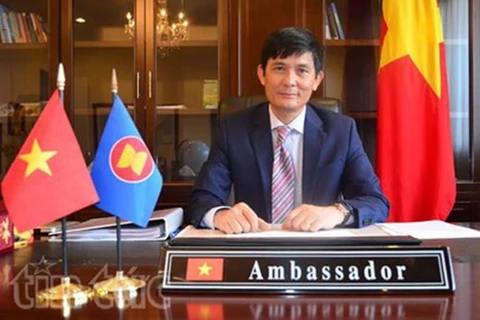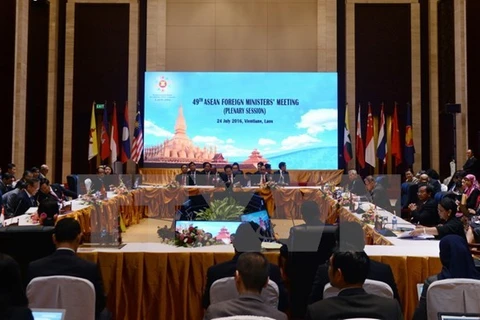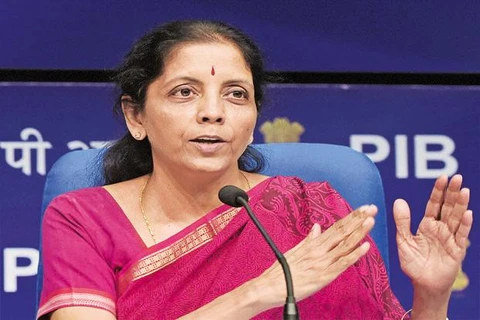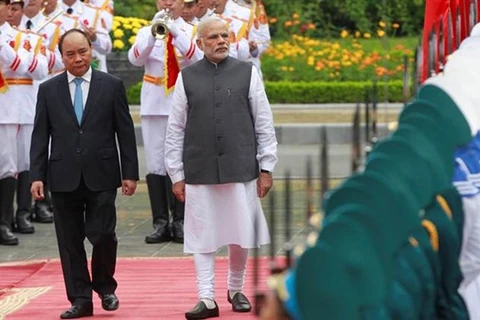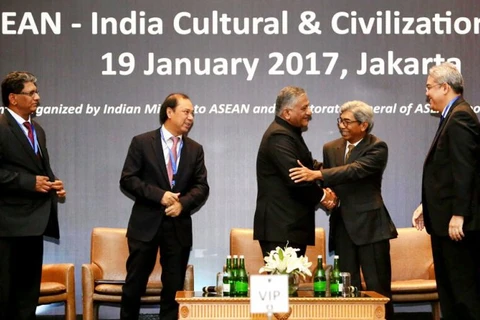New Delhi (VNA) – The 19th ASEAN-India Senior Officials’ Meeting (SOM) took place in New Delhi, India on April 5-6, discussing ways to promote cooperation between the two sides.
During the event, chaired by Deputy Foreign Minister Nguyen Quoc Dung, head of Vietnam ASEAN SOM, and his Indian counterpart Preeti Saran, who is also head of India ASEAN SOM, the two sides reached a preliminary consensus on activities to mark the 25th anniversary of the ASEAN-India strategic partnership (1992-2017).
Participants compared notes on global and regional issues of common concern, stressing that countries and regions need to strengthen links in multilateral cooperation mechanisms to respond to traditional and non-traditional security challenges.
They pledged to continue fostering coordination between ASEAN and India at regional forums.
As an important partner of ASEAN, along with implementing its “Act East” policy, India is aiming to restructure its relations with regional countries, especially ASEAN, considering it a priority in its foreign policy.
Participants demonstrated determination to build a regional structure based on law, dialogue and cooperation, with the active involvement of external partners and big countries, including India.
They said that ASEAN should play a central role in the process and intra-bloc unity and solidarity will be a decisive factor in building a new regional structure.
Reviewing ASEAN-India economic and trade links, participants highlighted the importance of effective implementation of free trade agreements.
They said the two sides should step up maritime cooperation in the Pacific and Indian Oceans, and other fields such as IT, biology, new materials and environmental protection.
In his speech, Deputy FM Nguyen Quoc Dung noted that ASEAN and India should boost people-to-people exchanges, which serve as a foundation for closer links in security-politics, economy and culture.
Regarding global and regional issues, he stressed the importance to maintain peace, stability, security, safety and freedom of navigation and overflight in the East Sea, saying that this is the responsibility of countries, including India.
Countries need to respect international law, including the 1982 United Nations Convention on the Law of the Sea and diplomatic and legal processes in the region, including fully implementing the Declaration on the Conduct of Parties in the East Sea.
ASEAN and China have resumed negotiations of the building of a Code of Conduct (COC) in the East Sea, towards reaching a framework agreement of the document in 2017, laying a foundation for finalising a COC in the future.-VNA
VNA

